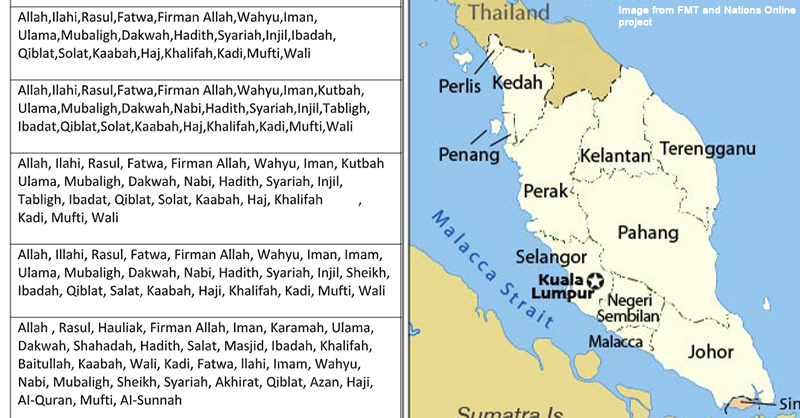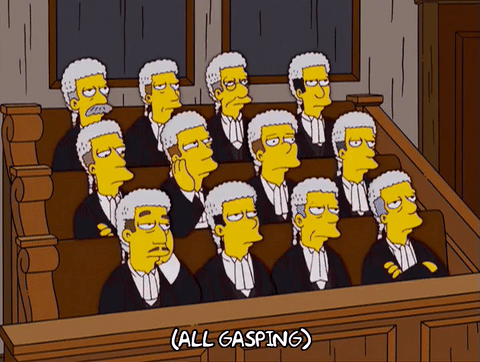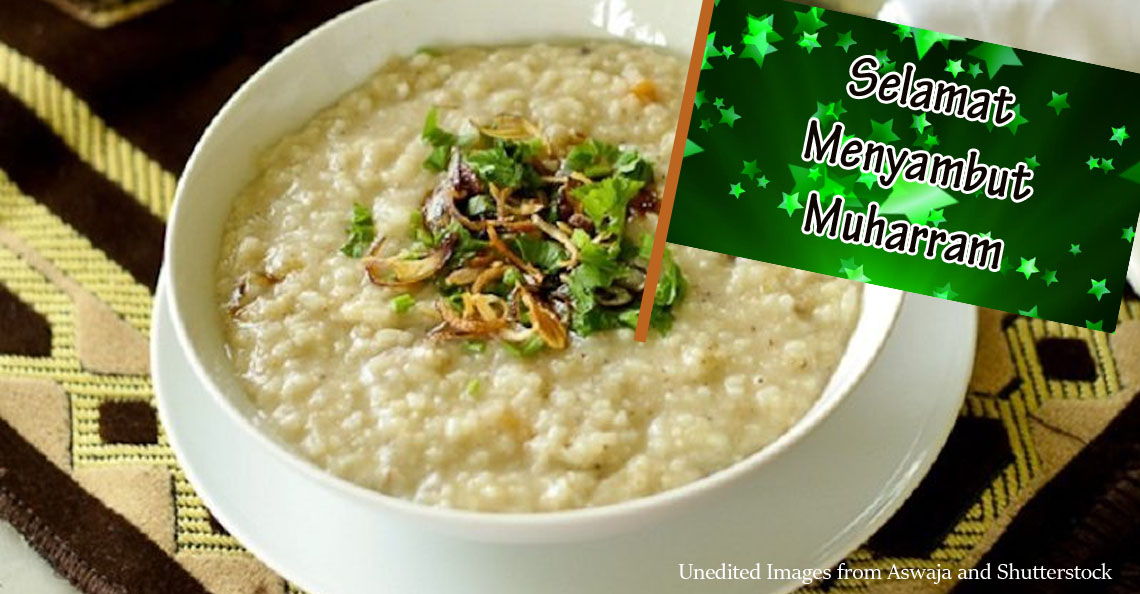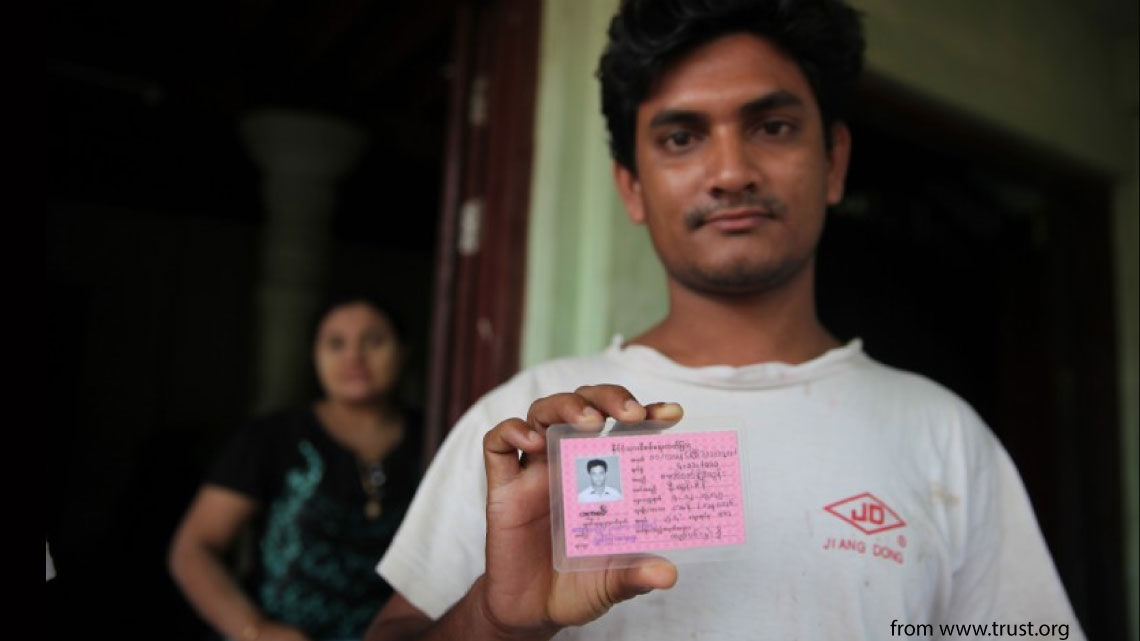There are at least 14 words non-Muslims are banned from saying under Msia’s Syariah law

- 3.3KShares
- Facebook3.0K
- Twitter19
- LinkedIn11
- Email18
- WhatsApp202
In September 2021, our Deputy Minister of Religious Affairs at the time said that they were planning to draft four new Syariah laws, and one of them was about restricting the development of non-Islamic religions. Understandably, this announcement received backlash from the non-Muslim communities because Syariah law should only affect Muslims.
We looked into this and interestingly, this law has actually been around for a long time – in some states since the 1980s, with the glorious BM name Enakmen Kawalan dan Sekatan Perkembangan Agama Bukan Islam.

And under this enactment, there’s a specific law that stops non-Muslims from using specific words. Because Syariah law is governed by state, the punishments range between a fine of RM1k – 10k and/or 3 months to a year in jail. But the worrying thing is that a lot of this words are quite commonly used. Besides the word Allah, some of these are common words such as Iman, Masjid, and Nabi. Interestingly, one of the banned words in Selangor – Nabi – is part of the name of one of our colleagues, Nabihah.
Do our non-Muslim colleagues have to stop saying her name now and call her ‘Hah’? Will JAIS kick down our doors for doing so? Can we use ‘Haha’ as NabiHah’s nama gedik now? We don’t know, so we decided to find out.
What are words the non-Muslims can’t say?
Before we check whether the word is a-okay in our office, let’s go through the list of banned words by state, so your non-Muslim colleagues can have the same existential crisis some of us had when we found out. We found a chart from FMT that lists it all, but to make life amazing for you (and difficult for our intern), we copypasted them all here to allow you to CTRL+F and find specific words (why would you do that tho).

All states (14 words)
Subhanallah, Tabaraka Allah, Alhamdulillah, Masyaallah Lailahaillallah, Lahaula Walaquata Illabillahilaliyil Azim,Walillahilhamd, Assalamualaikum, Allahu Akbar, Wallahi, Insyaalah, Wabillahi, Astagfirullahal Azim, Watallahi, Auzubillah.
Kelantan (24 words)
Allah, llahi, Rasul, Imam, Firman Allah, Wahyu, Iman, Nabi, Ulama, Mubaligh, Dakwah, Sheikh, Hadith, Syariah, Salat, lbadah, Qiblat, Khalifah, Kaabah, Haji, Wali, Kadi, Mufti, Fatwa.
Negeri Sembilan (36 words)
Allah, Mufti, Iman, Firman Allah, Rasul, Sheikh, Ulama, Imam, Akhirat, Hadith, Dakwah, Azan, lbadat, Injil, Al-Quran, Kaabah, Solat, Al-Sunnah, Kadi, Khalifah, Hauliak, Ilahi, Wali, Qaramah, Wahyu, Fatwa, Syahadah, Mubaligh, Kutbah, Masjid, Syariah, Nabi, Baitullah, Qiblat, Tabligh, Haji.
Kedah (25 words)
Masjid, Allah, Qiblat, Solat, Surau, Firman, Allah, Haji, Khalifah, Musalla, Hadis, Hajjah, Khutbah, Musabaqah, Kaabah, Mufti, Fatwa, Zakat, Kadi, Rasul, Imam, Fitrah, lbadah, Quran, Dakwah.
Terengganu (22 words)
Allah, llahi, Rasul, Fatwa, Firman Allah, Wahyu, Iman, Ulama, Mubaligh, Dakwah, Hadith, Syariah, Injil, Ibadah, Qiblat, Solat, Kaabah, Haj, Khallfah, Kadi, Mufti, Wal.
Pahang (25 words)
Allah, llahi, Rasul, Fatwa, Firman Allah, Wahyu, Iman, Kutbah, Ulama, Mubaligh, Dakwah, Nabi, Hadith, Syariah, Injil, Tabligh, lbadat, Qiblat, Solat, Kaabah, Haj, Khalifah, Kadi, Mufti, Wali.
Perak (25 words)
Allah, Ilahi, Rasul, Fatwa, Firman Allah, Wahyu, Iman, Kutbah, Ulama, Mubaligh, Dakwah, Nabi, Hadith, Syariah, Injil, Tabligh, lbadat, Qiblat, Solat, Kaabah, Haj, Khalifah, Kadi, Mufti, Wali.
Selangor (25 words)
Allah, Ilahi, Rasul, Fatwa, Firman Allah, Wahyu, Iman, Imam, Ulama, Mubaligh, Dakwah, Nabi, Hadith, Syariah, Injil, Sheikh, lbadah, Qiblat, Salat, Kaabah, Haji, Khalifah, Kadi, Mufti, Wali.
Melaka (33 words)
Allah, Rasul, Hauliak, Firman Allah, Iman, Karamah, Ulama, Dakwah, Shahadah, Hadith, Salat, Masjid, lbadah, Khalifah, Baitullah, Kaabah, Wali, Kadi, Fatwa, Ilahi, Imam, Wahyu, Nabi, Mubaligh, Sheikh, Syariah, Akhirat, Qiblat, Azan, Haji, Al-Quran, Mufti, Al-Sunnah.
(Note: Johor actually has a similar enactment, but we couldn’t find the jadual listing the words in their enactment)
If you look at the isi tersirat, there are four states which do not have the enactment: Sabah, Sarawak, Kuala Lumpur and Penang. Why exactly we can’t tell, but Sabah and Sarawak had previously voted against proposed Shariah amendments such as the RUU 355, which might be why they don’t have this enactment in their state.

But we’re sure you readers are really sharp and smart and would have this thought by now: “Wait, this is Syariah law, but this is about non-Muslim restrictions… isn’t Syariah law only applicable to Muslims? So if a non-Muslim says it, you can’t charge them in Syariah court, can you?”
That is a really good question, so we decided to ask a Syariah lawyer, Fahri Azzat, about this. And let’s just say he gave us a pretty in-depth explanation on this issue.
Actually… it depends on when and where you’re saying it
We know it’s simpler for us to say, “Yes, you can kena tahan”, or “No, you cannot because of these reasons”, but if you follow along to the answer, you might just learn something new. Because as we found out, it’s less straightforward then our regular laws.
Ready? Mari belajar adik-adik.

To start with, Fahri said that it’s best for us to just drop the idea of ‘Syariah law’ when thinking about these things – because that phrase is just a casual reference to everything that relates to Islamic law. Under our Islamic law, you first have to know the difference between offences to precepts of Islam and those which are not.
Offences to precepts of Islam – Precept just basically means ‘rules’ or ‘guidelines’ for Muslims. For example, one of them is not fasting during the puasa month. Since only a Muslim can break this rule, he can be tried in a Syariah court.
Those which are not – There are other offences against Islamic law which everyone can break, even if you’re a non-Muslim. One of them is distributing religious materials from another religion such as Buddhism or Christianity to a Muslim. This isn’t an offence against the precepts of Islam, but it is an offence under our Federal Constitution Article 11(4), so you can get charged in a court for it.

Now, if you’re following along, you might get a sense of the context where these forbidden words aren’t allowed to be used. Even though it’s not stated explicitly, the ban on these words is to stop other religions from using these words in their religious services or publications. In each jadual, it’s stated that these words can’t be linked to non-Islamic religion.
Fahri helped us to confirm this by looking at Kedah’s enactment:
“The enactment suggests that those words are prohibited from being used for publication, public statements or at a public gathering. If you look at Section 2 and Section 9 of the Enactment, it seems to suggest that. But if it is used privately in conversation then it is fine.” – Fahri Azzat
This means that yes, if you’re a non-Muslim, you can use the forbidden words in a regular conversation. But more importantly, this answers the question we had in our office about our colleague with the semi-forbidden name: Yes, the non-Muslims can call her Nabihah, instead of Hah. And that would apply for your friends with names like Iman or Haji as well.
But here’s something else that’s interesting: Sabah, Sarawak, Penang and KL do not have this enactment… yet. As to why, Fahri himself isn’t sure, but we asked for his dua sen anyway.
“I don’t know. I can understand Sabah and Sarawak because their religious freedom de facto [in practice] is more relaxed compared to the Peninsular even though from a de jure [legal] standpoint they can be pretty harsh (see Sabah). Perhaps the people in those states are more confident about their Islamic religious beliefs.”
But no need to worry about it….yet

So as we know at this point, you won’t get in trouble for using these ‘banned’ words in regular conversation, but it will still affect those involved in religions other than Islam – especially when they’re looking at further restrictions. But as it turns out, the new proposal was pretty short-lived. Just a day after it was announced, our Law Minister at the time basically said it’s not happening, because all of the states need to agree first for it to happen.
“Sometimes politicians ‘cakap ikut suka je’ , but it is more about the question of implementation (and) whether the states agree.” – Wan Junaidi Tuanku Jaafar
And Sabah was the first state to reject it, saying that it goes against the spirit of the multicultural state, as well as the Federal Constitution. In short, they muhibbah bah (Sorry bad joke).
Another observation here is something that we see pretty regularly in every online argument when it comes to Syariah – “Syariah is only for Muslims. It won’t affect you”. But as we can see, this enactment does affect non-Muslims, so when that happens it’s not just a question about religion, it’s a question about law. Just keep it muhibbah bah.
This article was first published on 13 September 2021.
- 3.3KShares
- Facebook3.0K
- Twitter19
- LinkedIn11
- Email18
- WhatsApp202



